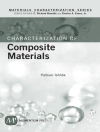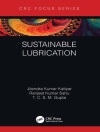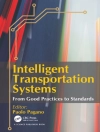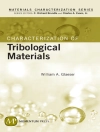The approach to plasticity theory developed here is firmly rooted in thermodynamics. Emphasis is placed on the use of potentials and the derivation of incremental response, necessary for numerical analysis. The derivation of constitutive models for irreversible behaviour entirely from two scalar potentials is shown.
The use of potentials allows models to be very simply defined, classified and, if necessary, developed and it permits dependent and independent variables to be interchanged, making possible different forms of a model for different applications.
The theory is extended to include treatment of rate-dependent materials and a powerful concept, in which a single plastic strain is replaced by a plastic strain function, allowing smooth transitions between elastic and plastic behaviour is introduced.
This monograph will benefit academic researchers in mechanics, civil engineering and geomechanics and practising geotechnical engineers; it will also interest numerical analysts in engineering mechanics.
Tabla de materias
Classical Elasticity and Plasticity.- Thermodynamics.- The Hyperplastic Formalism.- Elastic and Plastic Models in Hyperplasticity.- Advanced Plasticity Theories.- Multisurface Hyperplasticity.- Continuous Hyperplasticity.- Applications in Geomechanics: Elasticity and Small Strains.- Applications in Geomechanics: Plasticity and Friction.- Rate Effects.- Behaviour of Porous Continua.- Convex Analysis and Hyperplasticity.- Further Topics in Hyperplasticity.- Concluding Remarks.
Sobre el autor
Prof. G.T. Houlsby, FREng, FICE has been Professor of Civil Engineering at Oxford University since 1991. He read Engineering at Cambridge, and after two years in civil engineering consultancy returned to Cambridge for a Ph D in soil mechanics. In 1980 he moved to Oxford University, first as a Junior Research Fellow and then from 1983 to 1991 as a University Lecturer. His research is in geotechnical engineering, principally in the areas of offshore foundations, tunnelling, reinforced soil and in situ testing. Throughout this work there is a common theme of the understanding of the nonlinear behaviour of soils, and this has provided the principal motivation for more fundamental studies on plasticity theories for geotechnical materials. He has published over 170 papers.
Alexander M. Puzrin has been Full Professor of Geotechnical Engineering at the Institute for Geotechnical Engineering at the ETH Zurich since August 2004. He was born in 1965 in Moscow, USSR, where he studied Structural Engineering at Moscow Institute of Civil Engineers (1982-1987) and Applied Mathematics at Moscow State University (1990). He received his Ph.D. in Geotechnical Engineering from the Technion – Israel Institute of Technology in 1997. After post doctoral research positions at Imperial College, Oxford University and Tokyo University, he joined the faculty at the Technion as a Lecturer, being promoted to the Associate Professor in 2001. In 2002 he was appointed as an Associate Professor at Georgia Institute of Technology (USA). Prof. Puzrin has been involved as an expert and consultant in large scale geotechnical projects in Russia and Israel, including construction of the Bahai World Center in Haifa and extensions of Haifa and Ashdod Ports. His expertise lies in constitutive modeling of geomaterials, modern approaches to plasticity, and numerical analysis of geotechnical problems. His interdisciplinary research is an interaction of geotechnique, engineering mechanics, and appliedmathematics, currently also focusing on bio-medical applications. He has published over 50 papers.












